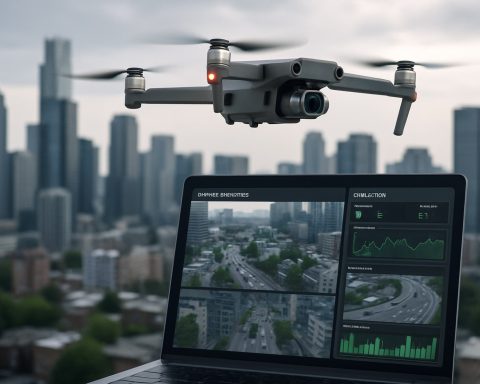The VIX index, commonly known as the “fear gauge,” measures the stock market’s expectations of volatility. Traditionally confined to the arenas of finance and stock markets, the VIX index is now finding an unexpected ally in smartphone technology, potentially altering the landscape of financial predictions.
With the rise of artificial intelligence and advanced data analytics in smartphones, these pocket-sized devices are no longer just communication tools. Newer models are now equipped with machine learning algorithms capable of processing massive data streams in real-time. This unprecedented ability has opened the door for smartphones to potentially track and analyse market sentiments, contributing to a more dynamic understanding of the VIX index.
Imagine a future where your smartphone not only alerts you to incoming emails and social media updates but also notifies you of a sudden spike in market volatility based on real-time analysis. By integrating financial apps that leverage AI, data from social media trends, global news, and investor forums are now being processed, offering insights akin to those traditionally derived from the VIX index.
Startups in the fintech domain are already exploring how smartphones can democratise access to financial insights. By blending the predictive power of the VIX index with smartphone capabilities, users may soon gain unprecedented access to personalised insights into market trends. This evolution stands to not only reshape how we view market volatility but also transform individual investment strategies in a tech-enhanced financial ecosystem.
How Smartphones Are Revolutionising Market Volatility Tracking Beyond the VIX Index
The VIX index, long known as the “fear gauge” for measuring the stock market’s volatility expectations, is undergoing a technological transformation thanks to advancements in smartphone technology. This progression stems from the integration of artificial intelligence and sophisticated data analytics tools into modern smartphones, potentially reshaping financial predictions.
Smartphones as the New Financial Analysts
With the incorporation of machine learning algorithms, today’s smartphones have transcended their primary function of communication devices. They are now capable of processing vast amounts of data in real-time, enabling them to track and analyse market sentiments with remarkable efficiency. This breakthrough offers users the potential to understand market volatility better, parallel to the insights provided by the VIX index.
The Future of Market Alerts on Smartphones
Envision a scenario where your smartphone performs beyond sending emails and social media notifications—it could alert you to sudden spikes in market volatility through real-time analysis. By integrating sophisticated financial applications that utilise AI, smartphones now process data from social media trends, global news events, and even investor discussions. This integration offers users insights similar to those traditionally obtained from the VIX index, providing a more holistic view of market dynamics.
Fintech Innovations: Democratising Financial Insights
In a significant shift, fintech startups are working towards making financial insights more accessible through smartphones. By merging the predictive capabilities of the VIX index with the mobility and sophistication of smartphone technology, everyday investors could access personalised insights into emerging market trends. This development promises not only to redefine perceptions of market volatility but may also significantly alter individual investment strategies. Investors, armed with real-time, personalised data, can make more informed decisions, enhancing their participation in the evolving financial ecosystem.
Impact on Investment Strategies and Market Participation
The rise of AI-driven smartphones holds the promise of transforming individual investment strategies by providing democratised access to robust financial data. As users receive tailored insights into market trends and signals previously reserved for seasoned investors, they can engage more effectively in stock market activities. This shift may lead to a more informed and participative investor base, fundamentally reshaping market dynamics.
Exploring the Implications
The integration of advanced smartphone capabilities with financial insights opens new avenues for enhancing how investors engage with market volatility. The potential for widespread use of such technology promises to democratise market understanding, bridging the gap between seasoned and novice investors. As AI and data analytics continue to evolve, the potential for smartphones to revolutionise market tracking and volatility analysis becomes ever more compelling. For more updates and innovations in financial technology, visit the Chicago Board Options Exchange.



















